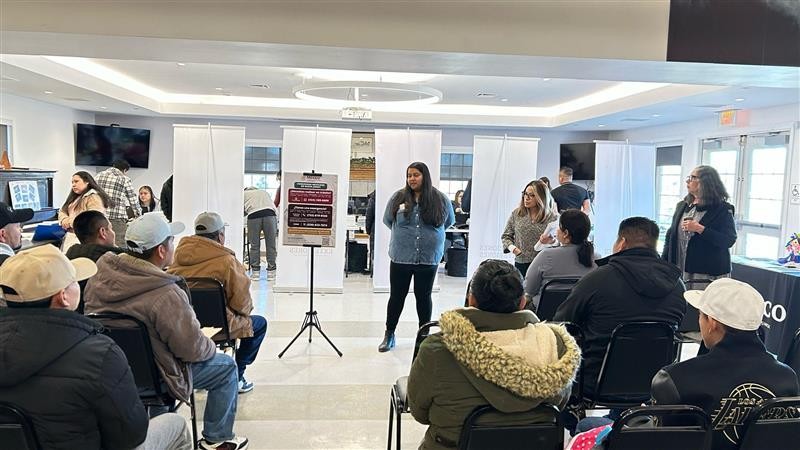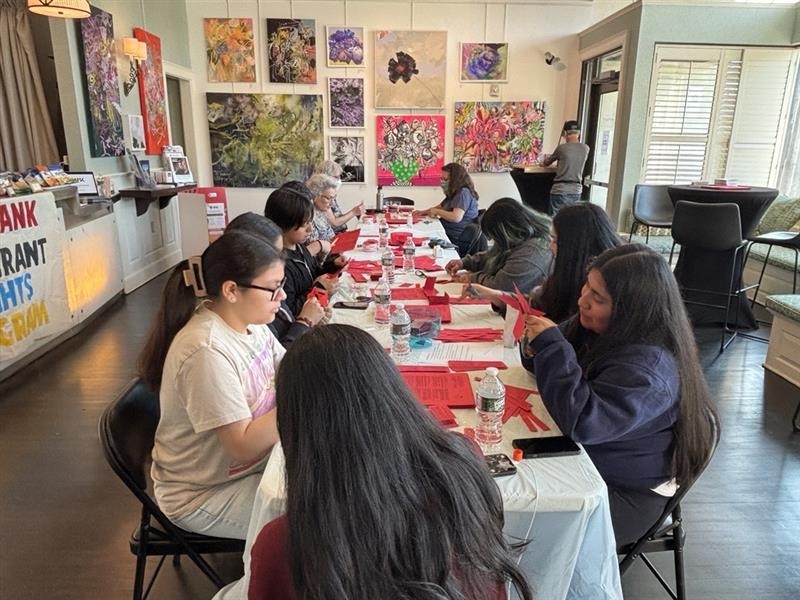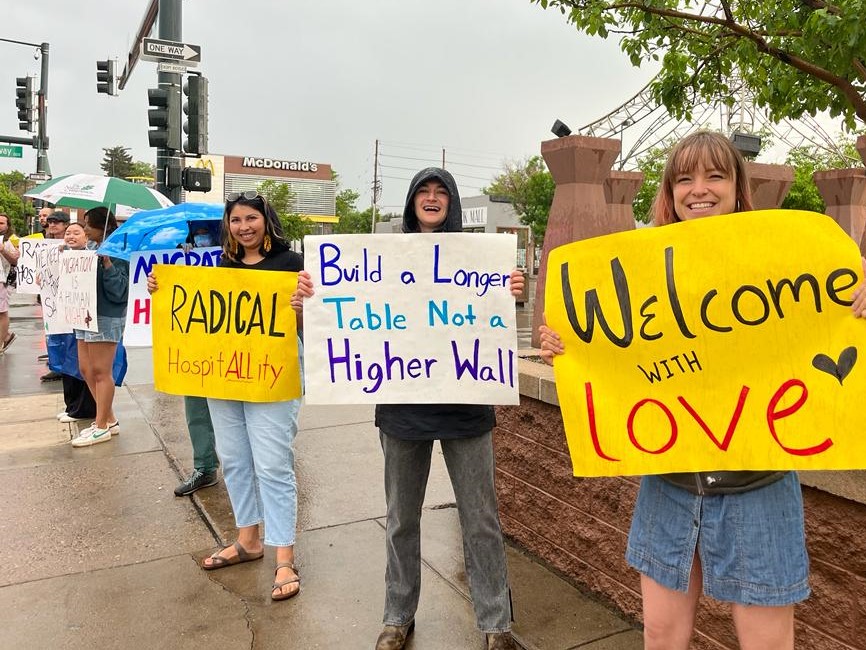
A training for providers in New Jersey. Photo: AFSC/New Jersey
When the rights and dignity of any one of our community members are at risk, we all have a responsibility to do something about it. Today, the Trump administration is threatening the safety of our communities by expanding detention and deportations, dismantling longstanding rights, and enacting policies that dehumanize immigrants.
But in New Jersey, a powerful network of protection is forming across the state, with support from AFSC. We are equipping schools, health care facilities, service providers, and other organizations and individuals with the knowledge they need to help protect community members against Immigration and Customs Enforcement (ICE) raids.
“When the policies being enforced by government are immoral, you have to point that out,” says Itzel Hernandez, an AFSC immigrant rights organizer in Red Bank who leads Know Your Rights trainings across New Jersey. “These policies aren’t just attacks on immigrant rights—they are undermining our democracy. Someone has to say that this is not the norm. It is not OK.”
A growing threat to immigrant communities
Since taking office, the Trump administration has dramatically ramped up immigration enforcement. It rescinded a longstanding policy that discouraged ICE from conducting raids in schools, hospitals, places of worship, and other sensitive locations. ICE agents have conducted multiple workplace raids across the country. And they are detaining people during routine check-ins and court hearings.
The administration has also implemented policies designed to make immigrants feel unwelcome and unsafe in their own communities. That includes requiring immigrants to register with the federal government or face criminal charges.
These cruel actions and others have fueled fear throughout immigrant communities. People are afraid to take their children to school, drive to work, or seek medical services. On social media, community members also post about potential ICE sightings, which can create even more anxiety.
“I wake up to messages from young people here who are getting ready for school, saying, ‘I saw this car in my neighborhood—do you know if it’s ICE?” says AFSC youth organizer Julie Flores-Castillo, who communicates regularly with local student groups. “We do what we can to verify these reports to avoid creating unnecessary panic.”

Volunteers make "red cards" to distribute to immigrants and other community members to prepare for encounters with ICE. Photo: AFSC/New Jersey
Equipping communities with knowledge and power
Across the U.S., AFSC conducts Know Your Rights trainings to prepare immigrants, their families, and community members for interactions with immigration enforcement. In New Jersey, we also train service providers who work with immigrants, creating a network of protection that extends far beyond immigrant communities themselves.
Since the start of this year, AFSC has trained staff from nearly 300 service providers in New Jersey. That includes schools, health care facilities, domestic violence shelters, food banks, and county agencies. In addition to providing basic information about immigrants’ rights as individuals, we help providers understand their own constitutional protections and responsibilities.
“I tell providers, ‘It’s about what’s at stake for you right now,’” Itzel says. “You've got to know your Fourth Amendment rights. ICE agents can’t just walk into your school, your shelter, or your health center and do whatever they want. You have to know about things like judicial and administrative warrants so you can protect your institution, services, and community members you are serving every day”
When immigration enforcement can enter sensitive spaces without warrants, everyone’s constitutional protections are at risk, regardless of their immigrant status. “It’s important to understand that we are collectively being asked to be complicit in the dehumanization of many of our neighbors, to give up our agency, freedom, our humanity," says Itzel. “That's why this should matter to all of us.”
Meeting an overwhelming demand
More community members and organizations are stepping up to protect immigrants from harm. Recently, Julie and fellow AFSC staff member Hermione Carvente-Lopez returned to their high school alma mater expecting to train a small group of administrators. When they arrived, there were nearly 200 teachers and staff eager to participate.
“It was very surprising to see the number of people in that crowd,” says Hermione. “We let them know what we were hearing from students and families, and we gave them the information to help protect them.”
AFSC has also distributed thousands of Know Your Rights materials to providers who are spreading this information throughout their communities. Julie has organized “red card parties” where volunteers show up to cut out and laminate wallet-size Know Your Rights cards to distribute to the public.
“We've yet to hear anyone say they want to cooperate with ICE,” Itzel says. “That’s not what these providers signed up for. Instead, they ask us for more resources. Not just for whoever they’re helping, but for family members of that person or other people that they want to help.”
In these challenging times, we must stand together across differences to protect human dignity and civil rights for all community members. When service providers, schools, health care facilities, and community members join forces to understand and assert their rights, they create a stronger shield of protection for everyone.
“I tell providers, ‘We’re going to help you have that normalcy as much as we can by ensuring that you can keep doing this work,’” Itzel says. “‘We want to ensure you can keep caring for every child that comes into your classroom, every patient that walks through your doors, no matter where they're from.’”
